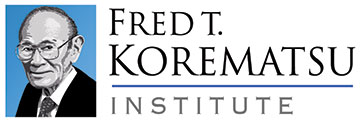Fred Korematsu Day of
Civil Liberties and the Constitution
The internment notice came out, and it burned me up, you know. Here I am, an American, and I have to go to internment camp. I was really upset. And I said, ‘I’m not going to go. I’m an American and that’s what I am and I’m going to stay that way.’” – Fred T. Korematsu
On January 30, we celebrate Fred Korematsu Day of Civil Liberties and the Constitution. In 2010, the state of California passed the first Fred Korematsu Day bill, making January 30 the first day in the U.S. named after an Asian American.
But as much as the day is about civil rights and civil liberties, Fred Korematsu Day of Civil Liberties and the Constitution is also about our Constitution. Fred Korematsu learned about the Constitution in high school. And he believed he had rights as an American citizen. At the time of the Japanese American Incarceration, all due process of law was denied to citizens of Japanese descent. Two thirds of the 125,000 people that were incarcerated were American citizens. And it didn’t matter. Fred Korematsu knew this was wrong. Why should he go to a prison camp? There were no charges and there was no day in court. He truly believed in this country. He believed in the Supreme Court even though the Korematsu v. United States decision in 1944 was against him.
Have we learned from our history? We currently find ourselves at a crossroads in how we deal with hard history and real threats to our civil rights. Right now, teachers in pockets across the country are being prevented from teaching uncomfortable facets of the American story from slavery and the struggle for civil rights to the displaced and marginalized indigenous and tribal communities around the country. We think blatant discrimination or the prospect of mass incarceration is in the past, but as we saw with the proposed “Muslim Ban” of 2016 or public hate speech and rhetoric that affected the AAPI community in the wake of the pandemic, there is no guarantee that the horrors of racial profiling, violence, and unfortunately, incarceration will not rear their head’s again.
When the exclusion order was posted on telephone poles in 1942, like many others, Fred Korematsu was angry and hurt, and left unsure of his future. He could not believe that the United States government could pass Executive Order 9066 against its own citizens. He was an American who represented his community and championed free speech, social justice, and racial equality. He understood that we must take on the obligation that comes with the rights granted to us by the US Constitution. While it is our social responsibility to stay informed, to vote in every election, and to stand up for what is right, our civil liberties should be sacrosanct. We can never again sanction the wholesale rounding up and detention of a group of people, based solely on their nationality, sex, or religion.
People tend to have short memories and we need to keep reminding people not to repeat the same mistakes of the past. The fight for justice, racial equity, and human rights begins with education. And there is no place more important than the public education classroom for sharing the truths, histories, and voices of all peoples and the power of the Constitution. the freedoms guaranteed in our Constitution but also prevents another Japanese American incarceration that upended the lives and livelihoods of 125,000 people who shared ancestry with “the enemy”. Our Bill of Rights protects each citizens’ civil liberties from the federal government’s infringement and overreach. Fred believed when you see something wrong or unfair, you speak up. You let your voice be heard. In the end, we must stand up for what is right every day. This is about all of us.
